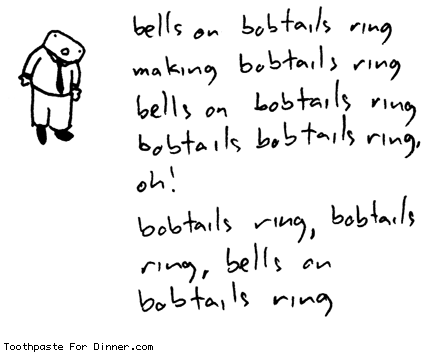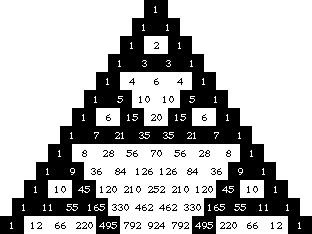archaic implies having the character or characteristics of a much earlier time. Its not clear where the word came from. Boston, MA 02135, Phone: +1-617-731-3510 A 2I{*faPwc%Ei Before the arrival of the Anglo-Saxons, the majority of the population of Britain spoke Celtic languages. I didnt even spring for the fake cobwebs! Nglish: Translation of archaic for Spanish Speakers, Britannica English: Translation of archaic for Arabic Speakers. Back in the day, you might have described someone easy on the eyes as eyesome. They are believed to be either neologisms or intentional revival of archaic words. Archaic words that used to be common In English. Pack Your Bags! Word Lists Views expressed in the examples do not represent the opinion of Merriam-Webster or its editors. It brings us much joyance to share this charming word with you. It should be noted that often poets and writers of prose with a very strong feel for the language may on occasion deliberately choose to use archaisms to emphasise a certain point or to create a mood. He uses many archaic words that even in his day had already fallen out of use.
Archaic words that used to be common In English, Are You Learning English? The most famous feature of his style is the use of archaic words. It was particularly used to refer to someone who was a buffoon. At the start of this period English was spoken throughout England (except in western Cornwall, where it was rapidly replacing Cornish) but was frequently compared unfavourably with Latin as a literary language. insecure by removing its foundations, a person who pretends to be knowledgeable, a very small amount of something, especially a quality, (of a priest) absolve (a person making a confession), a small piece of bread or toast for dipping into soup or sauce, bread, especially as rations for sailors or soldiers, a container for drinking beer, etc. Bikini, bourbon, and badminton were places first. Give it a whirl next time youre writing a scary story. international development translation services, How Simultaneous Interpreting Can Benefit Your Company, Why Software Translation is Vital in Software Industry, Why Life Science Translation is a Necessity, Why Japanese Translation Services Are Essential to Manga Culture, 12 Hilarious Menu Translation Services Fails, 6 Industries That Need Korean Translation Services, VALHALLA: Using Images for Better Machine Translation, Top 5 Countries That Definitely Need Interpreting Services, How E-Learning Translation Services Can Aid Student Success, Why E-learning Localization is a Must in the Education Industry. At this time the shape of the language began to coalesce and a relatively standard orthography emerged. We use cookies to enhance your experience on our website. Language Connections LLC pUI\3(Zd6 ^xY@p.-Eoy85,SL`PS40lr-p7]c[+6(&Rm9u1z. An initial automated pass updated approximately 1,000 archaic words, phrases and grammatical constructs. The word bawcock is a charming, archaic noun that meant a fine fellow, colloquially. 2022. Subscribe to America's largest dictionary and get thousands more definitions and advanced searchad free! Theres something fascinating and horrifying about things coming back from the dead. For example, The new changes to the Facebook timeline are hagriding me. (Yeah, why cant it just be chronological?).
The chronological boundaries of the Middle English period are not easy to define, and scholarly opinions vary. Archaic. Merriam-Webster.com Dictionary, Merriam-Webster, https://www.merriam-webster.com/dictionary/archaic. Send us feedback. The first period dates from approximately 450 to 1150 AD. Well, people in olden times had a word for that, too: ventose. A part of the root stock of the OE vocabulary.
This archaic noun means a person who causes contention or discord. What we might call a troublemaker (among stronger alternatives). If someone calls you a clodpoll, you should be offended. Nice try, cat, but were on to you. The devil is known for having many hobbies: guitar playing, getting people to eat apples they shouldnt, and making Mia Farrows life difficult. antiquated teaching methods not necessarily reflect the opinions or positions of Oxford University Press. %PDF-1.1 % The beauty of languages is that they are evolving all the time, allowing the translation and interpreting services providers, and even those not working in linguistics, to expand their vocabulary continuously. If you continue to use this site we will assume that you are happy with it. Its an archaic noun that means a fiendishly cruel and wicked person (a kite is a bird of prey). Joyance is a word that just makes us happy because it means joyous feeling; gladness. Its a largely poetic term, said to be coined by Edmund Spenser, famous for his epic poem The Faerie Queene.
'pa pdd chac-sb tc-bd bw hbr-20 hbss lpt-25' : 'hdn'">, These words are often used together. antique applies to what has come down from a former or ancient time. But, its actually an archaic transitive verb that means to afflict with worry, dread, need, or the like; torment., It apparently originally referred to a witchs well-known penchant for riding brooms, as in they hagrode over the farmhouse. Later, it came to mean anything that weighs on you and causes you psychic pain. When Milton writes, Is there cause why these Men should overwean?, we resoundingly answer, No.. Email: service@languageconnections.com, Your email address will not be published. eVg-iAI6mm[?y 8%}W.e\&mLc`8*&0L84ah52_NV["0@0GP|a&H^ kPxP3:'c1&a These example sentences are selected automatically from various online news sources to reflect current usage of the word 'archaic.' The early modern English period follows the Middle English period towards the end of the fifteenth century. Believe it or not; however, words do disappear (so no need to call a professional interpreter to read to you just yet). Mome meant a fool; blockhead., While you might think this is what Lewis Carroll had in mind in his famous poem The Jabberwocky (All mimsy were the borogoves; And the mome raths outgrabe,), that doesnt seem to be the case. During this time the majority of the inflections disappeared, and many Norman and French words joined the language because of the profound influence of the Anglo-Norman ruling class. It makes us think of those YouTube videos of golden retrievers joyously leaping through mud puddles, daggling their tails in the muck. You might say, for example, Ted Mosby from How I Met Your Mother is a bawcock with a heart of gold., Bookcraft means just what it sounds like. Today, you could use it to refer to an author whose books you love and admire, as in, J.K. Required fields are marked *. Just five more minutes!), A hagride sounds like an Uber full of witches on their way to a spell convention. Hopefully, we have some eye of newt and toe of frog left in our stores . Armipotent is an archaic adjective meaning strong in battle. Basically, it refers to someone who is physically tough in war. What if the next time you do a job, instead of a paycheck you get a meed? Contact us! ancient accounts of dragons Examples of obsolete words in the OED include: Obsolete words are marked by this symbol: . Website Managed by Compete Now. You may spot in our etymology and quotations sections: The difficulties around OE mean that its difficult to be certain of what the oldest English word is, but among the earliest are some of the most familiar words in English, such as: However, these appear in different forms (for example, shower is written as sceor in one OE quotation). ah &I*KS7cx2. venerable stresses the impressiveness and dignity of great age. * CM4Uefj4w( .V8n 5A dNgE)t\>zb5W0]S53&eT!}t Rare is typically used when there are fewer than three quotation-examples available in the databases available to our editors; and now rare is used if the word was quite common in the past but infrequent since 1930. The archaic verb daggle will remind you of the collective noun gaggle, but it doesnt have anything to do with geese. Today, we might say: That Instagram influencer has a mickle of followers., In addition to lickspittle and clodpoll, another great archaic insult is mome. However, it is uncertain how much Latin remained in use in the post-Roman period. Example from the Hansard archive. With over one million words in the English language alone, learning every single one can seem daunting. ancient applies to occurrence, existence, or use in or survival from the distant past. Still used in Biblical, Shakespearian and poetical language. But, actually, its an archaic adjective that means headstrong, impetuous, passionate.Brainish could be a modern-day word for how we all act on social media sometimes. This kind of plural formulation comes from Old English, and we still have a few examples of it left in modern English. By clicking 'continue' or by continuing to use our Mundungus is an archaic noun referring to malodorous (read: smelly) refuse or tobacco.
These examples are from corpora and from sources on the web. Our Privacy Policy sets Its an old-fashioned way of saying it seems to me. If youve heard it before, its probably in the line from Hamlet by William Shakespeare: the lady doth protest too much, methinks (often misquoted with the methinks at the beginning of the sentence). How often do you come across a word youve never seen before? It refers to the language as it was used in the long period of time from the coming of Germanic invaders and settlers to Britainin the period following the collapse of Roman Britain in the early fifth centuryup to the Norman Conquest of 1066, and beyond into the first century of Norman rule in England. ; a flagon, a female prostitute or a promiscuous woman, flamboyantly swagger about or wield a sword, a person in charge of something, especially factory machinery, faith or loyalty when pledged in a solemn undertaking, a maid who assisted both the cook and the housemaid, a woman, especially an old or uneducated one, the amount of land that one pair of oxen could plough in a day.
 Reach out to us today for a free quote on our cost-efficient and timely translation services, interpreters, or other linguistic services. Pancakes vs. Flapjacks vs. Hotcakes: See How They Stack Up, The Mandela Effect, Streisand Effect, And Other Effects That Explain Our Strange Minds, Examples Of Every Letter Being Silent, With The Exception Of, Cello vs. Bass: Think Deeply On The Difference, How To Refer To Little People: The Terms To Know, Archaic Words We Need To Bring Back To Life.
Reach out to us today for a free quote on our cost-efficient and timely translation services, interpreters, or other linguistic services. Pancakes vs. Flapjacks vs. Hotcakes: See How They Stack Up, The Mandela Effect, Streisand Effect, And Other Effects That Explain Our Strange Minds, Examples Of Every Letter Being Silent, With The Exception Of, Cello vs. Bass: Think Deeply On The Difference, How To Refer To Little People: The Terms To Know, Archaic Words We Need To Bring Back To Life. Have you ever heard that someones a windbag or a blowhard? Dispiteous isnt something you should aspire to be. *If you do not have personal access to the OED, learn more about signing in via an institution (such as a public library) here. Its an archaic noun that means a stupid person, a blockhead. Rude.
 These are properly calledarchaisms orarchaicwords.Archaic words (or forms) are commonly used in an earlier time but rare in present-day usage except to suggest the older time, as in religious rituals or historical novels., Weve decided to brush off our spell books, heat up old cauldrons, and try to bring some of these ghosts back to life. Daggle means to drag or trail through mud, water, etc.. old may apply to either actual or merely relative length of existence. Read more to find out some English words that you dont come across every day. @
6#pxp@0c*:47ISHp9
#N30mOce'R5P1pEub#(0"Em%C3ZV-'G 6hP
X`nX74 769u!TM3\c`;a 6 8\uz]X8!l
These are properly calledarchaisms orarchaicwords.Archaic words (or forms) are commonly used in an earlier time but rare in present-day usage except to suggest the older time, as in religious rituals or historical novels., Weve decided to brush off our spell books, heat up old cauldrons, and try to bring some of these ghosts back to life. Daggle means to drag or trail through mud, water, etc.. old may apply to either actual or merely relative length of existence. Read more to find out some English words that you dont come across every day. @
6#pxp@0c*:47ISHp9
#N30mOce'R5P1pEub#(0"Em%C3ZV-'G 6hP
X`nX74 769u!TM3\c`;a 6 8\uz]X8!l 